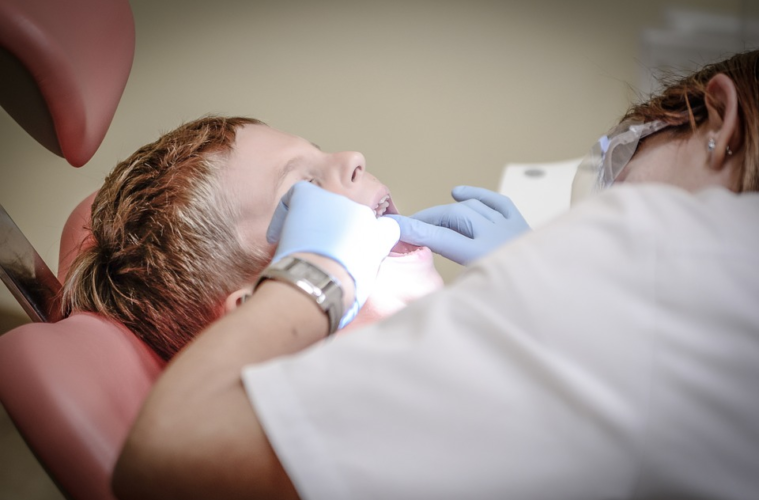Most people won’t realize how dental health is related to their overall health. But the truth is, dental care can help prevent many severe medical conditions like heart disease and diabetes. Read on for more information about dental benefits in relation to your health!
Proper dental care can help to prevent gum disease
Gum disease, dental caries, and tooth decay can all be prevented with regular dental care. Gum disease is an infection in the tissue of your gums that leads to swelling and redness, plus bleeding when you brush or floss. Dental caries are cavities caused by bacteria found on teeth left untreated for too long.
Tooth decay happens from drinking sugary liquids like soda over a prolonged time without brushing afterward. As explained at Boutique Dental, gum disease can lead to serious health issues such as heart attack and stroke if not appropriately treated. Visiting your dentist regularly and following dental hygiene practices can help avoid such dental problems.
Regular brushing and flossing helps to remove plaque, which is a major cause of tooth decay
Brushing and flossing daily will help remove dental plaque, which is a major cause of tooth decay.
How often should one brush their teeth?
– Make sure you brush after every meal as well.
– Twice a day is the minimum, but experts recommend brushing your teeth at least three times per day: once in the morning and twice before going to bed.
The best time for dental hygiene is when you wake up because studies have shown that this can help reduce plaque buildup on one’s tooth surfaces overnight. The second and third rounds of dental care are essential because they create a dental routine with consistency which helps ensure optimal dental health.
Brushing your teeth after eating acidic food or drinking sugary drinks helps to protect the enamel on your teeth
Eating acidic food or drinking sugary drinks will make your teeth more prone to dental decay.
After eating acidic food or drinking sugary drinks, brushing your teeth helps protect the enamel on your teeth, which is a thin layer that covers and protects the sensitive dental pulp.
It also re-mineralizes any damage caused by acidity from those foods and beverages and reduces bacterial growth in between meals.
Flossing removes bacteria and food particles from between your teeth
Flossing is important because dental floss removes food particles from in between your teeth. Without dental floss, the food stays on your teeth, and bacteria will grow and cause bad breath or cavities.
Cleaning your mouth after eating has shown to improve memory ability. A study found that people who have poor dental care are more likely to become depressed than those with good dental habits due to the adverse effects of chronic pain caused by periodontal disease.
Toothpaste with fluoride strengthens tooth enamel for protection against tooth decay

Which is the right toothpaste for better dental health?
– Fluoride toothpaste strengthens dental enamel and helps prevent cavities.
– Toothpaste without fluoride should be used only if a dental professional recommends them.
When brushing, the toothbrush bristles should be angled 45 degrees from the gum line. Brush gently in small circular motions, using light pressure. Rinse mouth after brushing.
Brush tongue to help remove bacteria. Children’s toothbrushes must have soft bristles because their gums are more sensitive than adults’ teeth when brushing.
Using mouthwash can kill germs in the mouth that lead to bad breath or other oral health issues such as gingivitis
Using mouthwash can kill germs in the mouth that lead to bad breath.
Mouthwash is an easy way for anyone who has difficulty cleaning their teeth properly due to lack of dental skills or dexterity, age, disability, or illness.
It also helps prevent gum problems like gingivitis which is inflammation in the tissues around your mouth caused by poor dental hygiene habits. This condition often leads to periodontal disease, where the tissue under your gum line will start receding away from the tooth’s surface and eventually cause tooth loss if left unchecked. Using mouthwash regularly cuts down on these dental diseases because it eliminates harmful oral microbes that accumulate inside your mouth.
Alcohol-based mouthwashes are preferred because they’ll also dry out your mouth and kill bacteria while you sleep, which helps prevent dental caries or cavities, especially in children who tend to drink milk and juices all day long without brushing their teeth first.
Proper dental care, including regular brushing and flossing, can help to prevent gum disease. Brushing your teeth after eating acidic food or drinking sugary drinks helps protect your teeth’ enamel. Toothpaste with fluoride strengthens tooth enamel for protection against tooth decay. Flossing removes bacteria and food particles from between your teeth, leading to bad breath or other oral health issues such as gingivitis. Using mouthwash can kill germs in the mouth, leading to bad breath or other oral health issues such as gingivitis. These simple habits are easy ways you can improve your overall health by taking better care of yourself! We hope this blog post was helpful and informative about how proper dental care is essential for your overall health.


